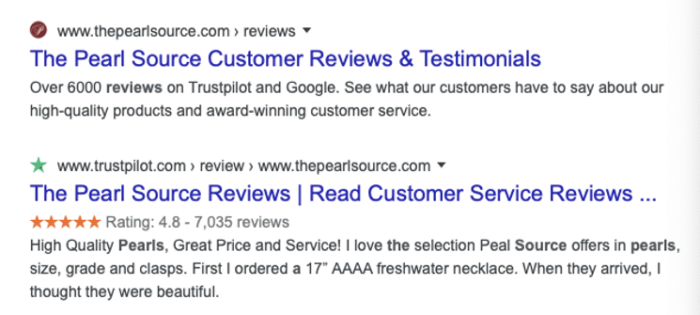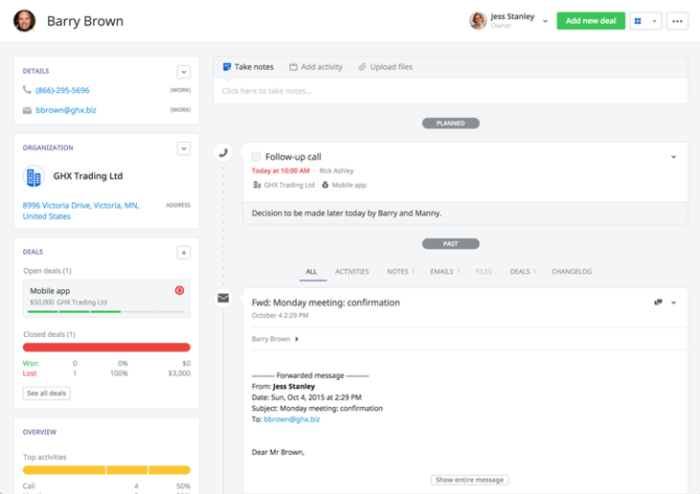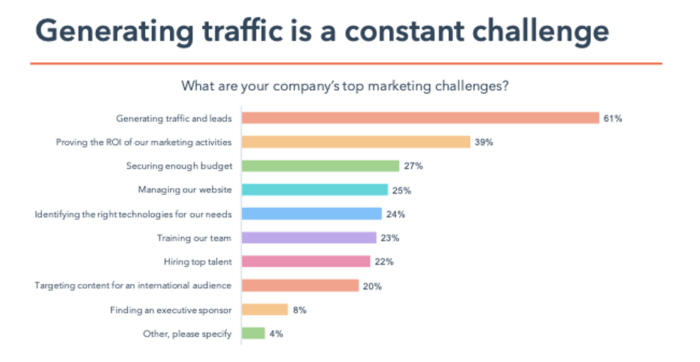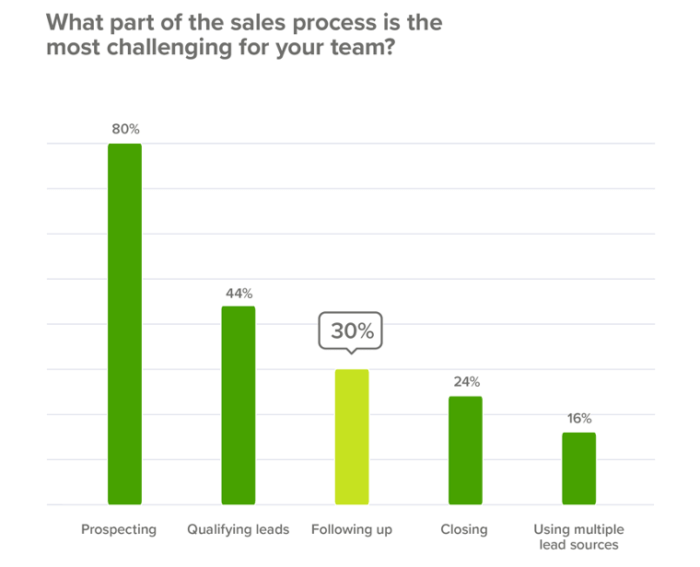If your company has struggled with prospecting, there is a high possibility that you're guilty of one or more of these major lead generation strategy mistakes
Generating new leads through content marketing, SEO, and advertising has been (and always will be) the main priority for any marketing team. This is what propels your business towards continuous growth – but many marketers find that the constant search for new potential clients and customers is extremely challenging and draining.
According to HubSpot’s research report, generating more traffic and new leads remains a top marketing challenge year-after-year, with over 60% of teams stating that it is the hardest part of their job.
Unfortunately, this leads many marketers to make up excuses for their lack of results. Many blame it on a lack of funding, their team is too small, or the sales team is dropping the ball with following up and nurturing the leads.
But the truth is that marketers have more tools and resources than ever before to discover and connect with customers all over the globe – so why are so many businesses struggling to drive in qualified, converting leads?
If your company has struggled with prospecting, there is a high possibility that your team is guilty of one or more of these major lead generation strategy mistakes.

1. You don’t actually understand your audience
Understanding your audience is the basic foundation of any marketing strategy. But unfortunately, many marketing teams are simply missing the mark.
Many teams just have a general idea of the people in their target market - or know the basic data, like age range, overall location, or even average household income.
But do you really understand the intent behind their actions?
Why do they need your product and what will make them want to buy from your brand specifically?
One major aspect of intent is understanding the underlying reasons that drive people to make a purchase. Generally, there are three main reasons:
- Necessity
- Cost
- Brand association
To cover your bases, it is best to create audience-focused content that hits on all three of these marks.
One great way to do this is to leverage reviews to create trustworthy content that drives leads to your website. Reviews help to hit all three incentives because they show new customers why they need to buy something and whether it is worth the price while also improving your brand's reputation.
The online jewellery retailer, The Pearl Source, used this strategy by integrating ratings and testimonials into its website to establish social proof through verified reviews. This also helped the site to rank higher in the SERPs and drive in more leads - especially since the vast majority of customers actively seek out reviews when making a purchase from a new company.

Online reviews seem to be getting more and more powerful when it comes to swaying purchase decisions. While we don’t have a crystal ball that tells us the future, we can say with confidence that a strong customer review management system is going to be a huge factor in gaining leads in the foreseeable future.
2. You’re using outdated keyword data
Another killer mistake that many marketing teams are guilty of is slacking on keyword targeting.
Generally, teams will conduct keyword research once so they have a general idea of the phrases and words that drive in relevant traffic - then do their best to incorporate those into all of their content from that time on.
Unfortunately, keyword research is not a one-time project; you need to be constantly refreshing your list of targeted words to see if there are any new ways to drive in leads through different types of queries.
It is important to know which metrics to actually be looking out for when conducting keyword research. While search volume is important, it is not necessarily the end-all, be-all – especially if you are trying to target more niche groups.
Don’t forget to measure:
- Keyword difficulty
- Keyword value in CPC (cost-per-click)
- Keyword intent
- Related keywords
For example, say that your online store markets indoor exercise equipment and generally targets family-owned or privately-owned gyms.
Download our Business Resource – Growth hacking guide
This guide explains all of the elements needed to ‘growth hack’ your way to increased sales (with a limited budget).
Access the Growth hacking guide
Through some keyword research, you discover that there is an increase of queries from individuals with gyms in their home who want to purchase an item - like a treadmill. Therefore, you would need to conduct deeper research to see the types of searches this niche audience is entering to find these items, like:
- Gym equipment for home
- Where can I buy a treadmill?
- Best treadmills for home gym

Without conducting consistent keyword research, you are likely missing out on valuable audience segments and potential leads. You should also be checking your previous list of keywords to see which terms are no longer driving in converting leads and consider removing or reframing the content.
3. Your sales and marketing teams are not aligned
One of the biggest reasons that your leads are simply not converting is because there is a disconnect between both your marketing and sales teams.
According to research from Super Office, nearly one-third of teams found it challenging to ensure that all leads were nurtured with follow-ups – this even outranked closing those deals.
A lack of alignment can mean a lot of your leads simply slip through the cracks - and all of your marketing team’s hard work is wasted! But according to
Act-On’s report, businesses with a solid sales and marketing alignment are 67% more likely to convert leads and were on average 27% more profitable.
To achieve alignment, it is best to utilize integrated technology that keeps track of all interactions so both sales and marketing teams know exactly how to nurture specific leads.

For example, the B2B SaaS company Kapost used this strategy to align their sales nurturing game plans with their marketing content. A sales associate spoke with a lead prospect who had some questions regarding Kapost’s software and how it could help their business. The associate answered their questions over the phone but saw there was no current content about those topics available on their website.
The salesperson recorded the information of the call in their integrated CRM system and shared the data to the marketing team – who then created new content addressing this problem. The sales associate was able to email that new content to their original prospect and also use it for future sales interactions.
Talk about amazing alignment!
Conclusion
Don’t let excuses stand in the way of your lead generation strategies. There could be a very simple reason why your numbers are struggling!
Thankfully, these common mistakes are fairly easy to recognize and correct – and you can expect to see payoffs almost immediately.
Manish is the President and Founder of
E2M Solutions Inc, a San Diego Based Digital Agency that specializes in Website Design & Development and eCommerce SEO. With over 10 years of experience in the Technology and Digital Marketing industry, Manish is passionate about helping online businesses to take their branding to the next level.











